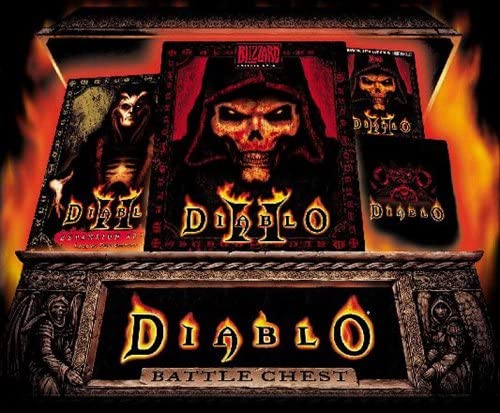6
replies
1007 views
Description
Hey y’all, this is again a complex topic, but d2r seems to be getting a surge of new players so I wanted to offer some advice, especially to those offline, but also open it up to online players (I remember what it was like living with an ‘economy’).
So to start I think we can all agree ‘low runes’ are anything from El to Dol ( Eld, Tir, Nef, Eth, Ith, Tal, Ral, Ort, Thul, Amn, Sol, Shael). Some people make the distinction of what can drop from normal or nightmare countess, but come on… who plays d2r for the mid-game?! (Sorry speed runners, but for everyone else we just suffer through late normal and early nightmare to get access to good gear!).
Some define low runes going up to Lem because Pul runes are the first to only need 2 to cube up to the next level. I think this is a good distinction.
However, I personally collect runes starting at Lum for 3 reasons: lums and higher start to get rare ( Io and below can usually be found consistently), they start to be important for higher level rune words, and cubing lesser runes starts to get tedious (I’ve cubed up from lums to ists fairly regularly, a gem mule is needed!).
Anyways, “mid runes” start at Pul, and go to… Gul because they can drop from The Hellforge quest? And anything higher than Gul is a “high rune”? I would argue not (depending on the situation).
So I think it’s important here to define your play style before defining what a “high rune” is:
-online non-ladder I’d say there’s an argument for Ber and higher to be high runes (your not relying on drops, but trading right? And there’s 10x the population in non ladder compared to ladder)
-online ladder I’d say there’s 2 options, first half of the ladder (6 weeks), Vex and up are high runes, after that probably Ber and up.
-offline: sorry guys but Sur and up are high runes offline, up to Lo takes a number of hours of lk, trav or cow runs, while Sur and higher are quite rare… days of play before you should expect a drop.
-high level traders / pvp’ers: you guys have your own community, I don’t even think high runes even count as currency for you (if you have more than 5 Bers to spend on a single trade you’re a high roller - congrats)
Does this make sense? A “high rune” has always been subjective to me, and now as I’m offline it’s much harder to define that compared to online players
Let us know what you think!
Description by So to start I think we can all agree ‘low runes’ are anything from El to Dol ( Eld, Tir, Nef, Eth, Ith, Tal, Ral, Ort, Thul, Amn, Sol, Shael). Some people make the distinction of what can drop from normal or nightmare countess, but come on… who plays d2r for the mid-game?! (Sorry speed runners, but for everyone else we just suffer through late normal and early nightmare to get access to good gear!).
Some define low runes going up to Lem because Pul runes are the first to only need 2 to cube up to the next level. I think this is a good distinction.
However, I personally collect runes starting at Lum for 3 reasons: lums and higher start to get rare ( Io and below can usually be found consistently), they start to be important for higher level rune words, and cubing lesser runes starts to get tedious (I’ve cubed up from lums to ists fairly regularly, a gem mule is needed!).
Anyways, “mid runes” start at Pul, and go to… Gul because they can drop from The Hellforge quest? And anything higher than Gul is a “high rune”? I would argue not (depending on the situation).
So I think it’s important here to define your play style before defining what a “high rune” is:
-online non-ladder I’d say there’s an argument for Ber and higher to be high runes (your not relying on drops, but trading right? And there’s 10x the population in non ladder compared to ladder)
-online ladder I’d say there’s 2 options, first half of the ladder (6 weeks), Vex and up are high runes, after that probably Ber and up.
-offline: sorry guys but Sur and up are high runes offline, up to Lo takes a number of hours of lk, trav or cow runs, while Sur and higher are quite rare… days of play before you should expect a drop.
-high level traders / pvp’ers: you guys have your own community, I don’t even think high runes even count as currency for you (if you have more than 5 Bers to spend on a single trade you’re a high roller - congrats)
Does this make sense? A “high rune” has always been subjective to me, and now as I’m offline it’s much harder to define that compared to online players
Let us know what you think!
Can be used to make Runewords:
Advertisment
 Hide ads
Hide ads
Greetings stranger!
You don't appear to be logged in...No matches


Nate
584